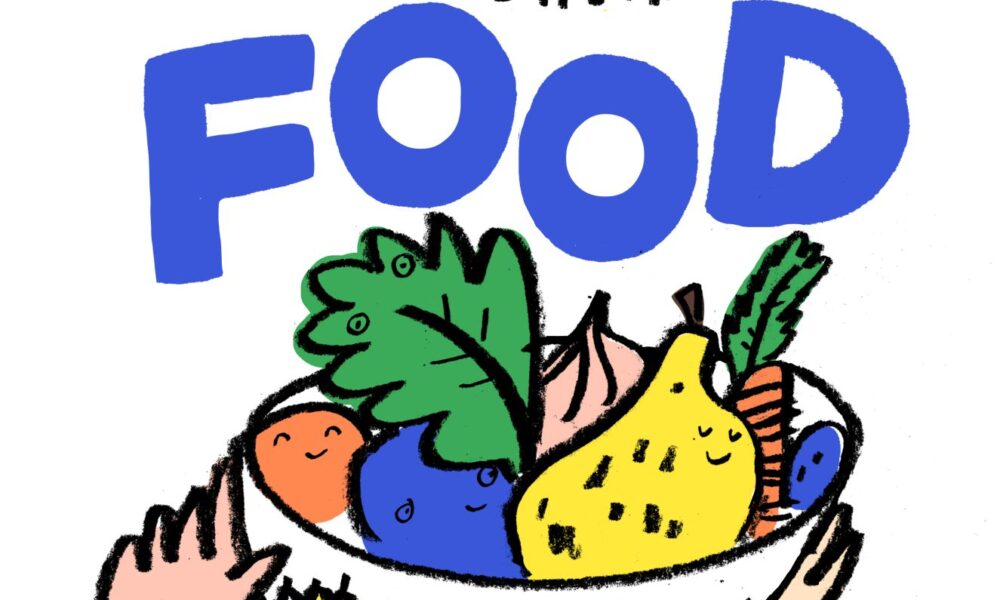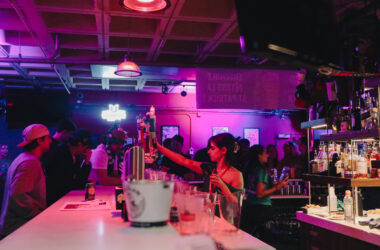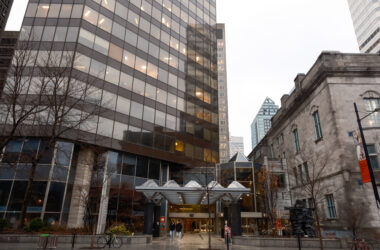The Quebec Public Research Interest Group at McGill (QPIRG-McGill) held their annual Culture Shock event series—dedicated to anti-racism, migrant justice, and Indigenous solidarity—from Oct. 6 to Oct. 27. The student-run and student-funded organization selected food as the event’s theme, delving into food as a human right, as an aspect of cultural and historical identity, as a social justice issue, and as a form of community-building.
Nelly Wat, an Outreach and Promotions Coordinator at QPIRG-McGill, explained that food felt like an important theme to tackle during this year’s Culture Shock because of the prevalence of food insecurity among both students and the broader Montreal community, particularly in the midst of inflation and rising food prices.
“That was the vision for the theme of food: Thinking about food as something that essentially should be a human right—something that people should have access to—but also something that can bring communities together,” Wat elaborated. “So, [there were] many different aspects of food that we wanted to explore. We had an open call-out for workshops, and people submitted their proposals.”
This year’s Culture Shock was comprised of four events: A panel discussion on food insecurity, a workshop on making elderberry syrup, a cooking event with Community Cooks Collective (CCC), and a community feast.
“[We] wanted to introduce students to a variety of ways to actually get involved in their community, beyond just working within your institution, within the university,” Wat explained when asked about the range of events. “Actually going out into the community and finding different ways that you can get involved [and] connecting with people outside of [the] McGill bubble, so to speak, the Anglophone bubble also.”
At the Oct. 6 panel, which kicked off the event series, three panellists and a moderator spent an hour and a half discussing the different ways that food systems and food insecurity impact peoples’ everyday lives.
“Today we will be covering a topic that affects everyone: Food,” Nat Alexander, Programming Coordinator at Midnight Kitchen and panel moderator, said at the start of the event. “Each panellist that we have has direct experience with different facets of the food system, from academic research and policy to growing and distribution.”
The panellists were professor Erik Chevrier from the Concordia Food Coalition, a group that aims to reimagine food systems and promote food sovereignty; Sona Sadio from the Sankofa Farming Cooperative at Concordia, a student-run community garden that provides food to Black and Indigenous communities; and Ayub Allene from Sister Sabria, an organization that seeks to provide food and shelter to those in need, particularly women.
“Food justice is a complex topic that interweaves so many disciplines and social issues,” Alexander elaborated. “Issues of income inequality can’t be separated from food justice. Issues of racism and colonialism can’t be separated from food justice. Food is also emotional, it’s a way that we connect, a way that we remember.”
During the event, all of the panellists stressed that existing food systems are not sustainable. Chevrier specifically pointed to the environmental impacts of our current farming and food production practices, emphasizing the need for change.
“Agriculture is a main culprit of actually producing CO2 [carbon dioxide]. So not just about food travelling from one distance to another, but as soon as you start tilling agricultural land, you’re actually releasing carbons,” Chevrier explained. “We’ve actually crossed the threshold of nitrogen and phosphorus being produced […] we’re actually chemically synthesizing these for farms […] we’re creating dead zones, we’re actually acidifying the ocean.”
Sadio stressed that food insecurity and food deserts have disproportionate effects on people of colour and those from lower-income neighbourhoods.
“Grocery stores don’t feel incentivized to open up in certain areas that they don’t see as profitable for whatever reason,” Sadio said. “And, when we rally around Black lives or Indigenous lives or talk about policing, and how that leads to so much debt, […] so does this issue with food, it’s up there with the main causes of debt.”
At one point in the panel, Alexander commended Let’s Eat McGill—a student-run campaign dedicated to tackling food insecurity on campus—for its efforts to bring accessible food options to McGill students. According to Wat, Let’s Eat McGill was also a recipient of QPRIG’s summer research stipend.
“They’re doing some really important work specifically on the issue of food insecurity, the price of food on campus and residences and cafeterias,” Wat said. “We typically fund projects that do community work like [Let’s Eat McGill], or research projects, as well as student research projects related to social [and] environmental justice.”
Chevrier suggested building a coalition like the Concordia Food Coalition at McGill in order to bring change to the university’s food systems.
“If you’re from McGill, you could actually start coalitions in your university to start changing your own food systems,” Chevrier said. “So Concordia, […] basically what we did is in 2013, [we] formed collective action to figure out ‘how can we transform our campus?’ and ‘how can this spill out into the community so that the community could actually reap the benefits of what we’re up to?’ [….] We actually now have the Hive Café, which is a collective-run organization, the means of production are owned by the community.”
In an interview with The Tribune, Wat emphasized that QPIRG-McGill is making a concerted effort to be more visible on campus.
“We’ve always struggled just a little bit to reach students, because oftentimes people don’t know who we are and our offices are not exactly on campus, [they’re] on Parc,” Wat said. “[Through the Culture Shock event series] we’re hoping to bring together a few community groups and some students as well, so that we can, you know, share a meal and also get to know one another even more.”
The final event of the Culture Shock series, a community feast for activists and community members, took place on Oct. 27.









